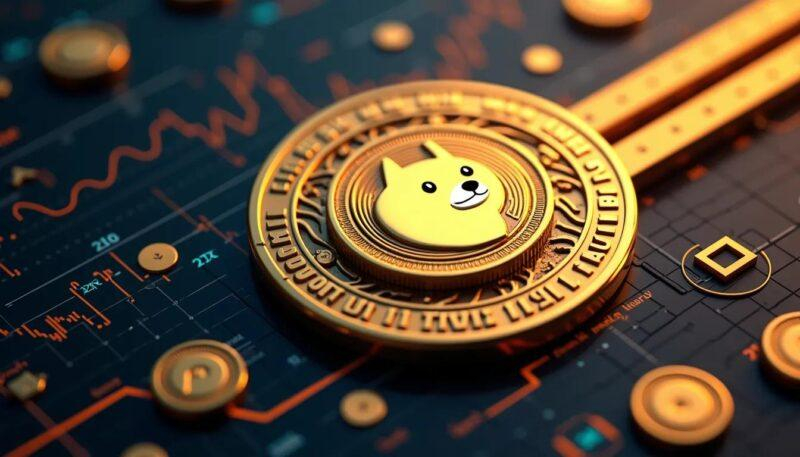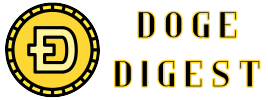In the world of cryptocurrency, securing your assets is of utmost importance. With the rise of Dogecoin and its increasing popularity, it’s more crucial than ever to understand how to protect your investments. This article delves into the world of secure exchanges, offering insight into how you can safeguard your precious Dogecoin holdings. Join us as we explore the art of guarding Dogecoin in the ever-evolving landscape of digital currency.
Understanding the Importance of Security in Dogecoin Exchanges
When it comes to trading Dogecoin, security should be a top priority for any investor. Secure exchanges play a crucial role in safeguarding your assets and personal facts from cyber threats. Without adequate security measures in place,your Dogecoin holdings could be at risk of theft or hacking.
One of the key aspects of security in Dogecoin exchanges is encryption. This technology helps to protect your data by converting it into a code that is unreadable without the proper decryption key. Encryption ensures that your sensitive information, such as account passwords and private keys, is secure from unauthorized access.
Another crucial security feature in exchanges is two-factor authentication. This extra layer of protection requires users to verify their identity using two different methods, such as a password and a code sent to their phone. By enabling two-factor authentication, you can substantially reduce the risk of unauthorized access to your exchange account.
Key Features to Look for in a Secure Dogecoin Exchange
Secure Dogecoin exchanges play a vital role in safeguarding your digital assets from potential threats and risks. When choosing the right exchange for your Dogecoin transactions, there are several key features that you should look for to ensure the security of your investments:
First and foremost, encryption is essential in protecting your personal information and transactions from unauthorized access. Look for exchanges that utilize advanced encryption techniques, such as SSL, to secure all data communication on their platform.
Another important feature to consider is two-factor authentication (2FA), which adds an extra layer of security to your account. By requiring both a password and a second form of verification,such as a text message code or authenticator app,2FA helps prevent unauthorized access even if your password is compromised.
In addition, cold storage of funds is crucial for keeping your Dogecoin safe from online hackers. Exchanges that store the majority of their funds offline in secure hardware wallets are less vulnerable to cyber attacks, offering added protection for your investments. Look for exchanges that prioritize the security of your assets through robust cold storage practices.
| Feature | Description |
|---|---|
| Encryption | Utilize SSL to secure data communication |
| Two-factor authentication (2FA) | Require password and second verification |
| Cold storage | Store funds offline in secure hardware wallets |
Tips for Safeguarding Your Dogecoin Investments on Exchanges
When it comes to safeguarding your Dogecoin investments on exchanges, there are a few key tips to keep in mind to ensure that your assets are secure.
- Enable Two-Factor Authentication: Setting up 2FA adds an extra layer of security to your exchange account, requiring a second form of verification along with your password.
- Regularly Update Passwords: It’s essential to frequently change your passwords and use strong, unique combinations to prevent unauthorized access to your account.
- Avoid Phishing Scams: Beware of phishing emails or websites that mimic legitimate exchanges to steal your login credentials. Always double-check the URL before entering sensitive information.
Common Security Threats to Dogecoin Exchanges and How to Mitigate Them
The security of Dogecoin exchanges is crucial in safeguarding users’ investments. There are several common security threats that can put these exchanges at risk, such as:
- Phishing Attacks: Hackers create fake websites or emails that mimic legitimate exchanges to trick users into revealing their private keys or passwords.
- Malware Infections: Malicious software can be used to steal sensitive information from users’ devices, compromising the security of their Dogecoin wallets.
- Insider Threats: Employees or individuals with access to the exchange’s systems may misuse their privileges to steal funds or manipulate transactions.
To mitigate these security threats, Dogecoin exchanges can implement the following measures:
- Multi-Factor Authentication (MFA): Require users to provide more than one form of verification, such as a password and a code sent to their mobile device, to access their accounts.
- Regular Security Audits: Conduct routine checks on the exchange’s systems and networks to identify vulnerabilities and address them promptly.
- Cold Storage: Store the majority of Dogecoin funds offline in a secure location to protect them from online attacks.
| Security Threat | Mitigation Strategy |
|---|---|
| Phishing Attacks | Education and awareness campaigns for users on how to spot and avoid phishing attempts. |
| Malware Infections | Encourage users to regularly update their anti-virus software and avoid downloading suspicious files. |
| Insider Threats | Implement strict access controls and monitor employees’ activities on the platform. |
Q&A
Q: What is the importance of securing Dogecoin exchanges?
A: Securing Dogecoin exchanges is crucial to protect your investments and prevent unauthorized access to your funds.Q: How can investors ensure the safety of their Dogecoin holdings?
A: By utilizing secure exchanges that offer features such as two-factor authentication, cold storage of funds, and regular security audits, investors can dramatically reduce the risk of theft or hacking.
Q: What are some common security risks associated with Dogecoin exchanges?
A: Common security risks include phishing attacks,malware,and insider threats. By choosing a reputable exchange with a strong security track record, investors can mitigate these risks.
Q: How can investors spot a secure Dogecoin exchange?
A: Look for exchanges that are registered with regulatory authorities, have a transparent security policy, and offer user-friendly security features such as biometric authentication and encrypted communication.
Q: What steps should investors take to safeguard their Dogecoin investments?
A: Investors should regularly update their passwords, enable two-factor authentication, and avoid sharing sensitive information such as private keys or account details. Additionally, conducting due diligence on exchanges before trading can help prevent falling victim to scams or hacks.
Final Thoughts
As we’ve explored the world of securing Dogecoin through exchanges, it’s clear that taking precautionary measures is crucial in safeguarding your cryptocurrency investments. By understanding the importance of secure exchanges and implementing best practices, you can protect your Dogecoin from potential threats and ensure its longevity. Remember to stay informed and stay vigilant in order to keep your assets safe. Thank you for reading and may your Dogecoin journey be both profitable and secure.







